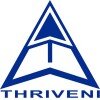Filter interviews by
China Steel Corporation Operator Interview Questions and Answers
China Steel Corporation Operator Interview Experiences
1 interview found
I appeared for an interview in Jul 2022.
(1 Question)
- Q1. Operator slitting line questions?
Interview Preparation Tips
Top trending discussions






Interview questions from similar companies

I applied via Company Website and was interviewed in Nov 2023. There were 3 interview rounds.

(1 Question)
- Q1. Genal taip , Technical
(3 Questions)
- Q1. Who are you job hai kya
- Q2. Job Hai to coll karna
- Q3. Interviews kob ho gaa

I applied via Approached by Company and was interviewed in May 2022. There were 2 interview rounds.

(2 Questions)
- Q1. It may be possible to your selection advise.
- Q2. Iam going to interview and tell me some questions.after that iam sending reply . After seven days .get out results .iam selected.so that after 15 days .iam joining the company.
Interview Preparation Tips
- Technical or
- Marketing sales

Interview Questionnaire
1 Question
- Q1. What is the function of turbine
- Ans.
A turbine is a device that converts the energy from a fluid flow into useful work, typically by rotating a shaft.
Turbines are commonly used in power generation, aviation, and marine propulsion.
They work on the principle of Newton's third law of motion, where the reaction force of the fluid flow causes the turbine blades to rotate.
Turbines can be classified into various types such as steam turbines, gas turbines, and hy...
Interview Preparation Tips

I applied via Job Portal and was interviewed before Nov 2021. There were 3 interview rounds.

Direct through campus placement and group discussion.
(2 Questions)
- Q1. All the studies related concepts were aksed
- Q2. About COST ACCOUNTING STANDARDS
Interview Preparation Tips

I applied via Recruitment Consulltant and was interviewed before Sep 2023. There were 2 interview rounds.
(2 Questions)
- Q1. What tools are you using for purchase
- Ans.
I use various tools for purchase such as procurement software, vendor management systems, and e-procurement platforms.
Procurement software
Vendor management systems
E-procurement platforms
- Q2. Brife introduction of your role
- Ans.
As an Associate, my role involves supporting senior team members, conducting research, analyzing data, and assisting with project management.
Supporting senior team members in various tasks
Conducting research and gathering data for projects
Analyzing data to provide insights and recommendations
Assisting with project management tasks such as scheduling and coordination
(2 Questions)
- Q1. Introduction, Last work experience
- Q2. How much you except in salary
Interview Preparation Tips

I appeared for an interview in Jan 2025.
(3 Questions)
- Q1. I do good supervisory
- Q2. And promotion for my work
- Q3. No question and good
(2 Questions)
- Q1. I do good supervisory
- Q2. And my promotion for my job
Interview Preparation Tips

I applied via Walk-in and was interviewed in Feb 2024. There was 1 interview round.
(1 Question)
- Q1. Experience of working....
- Ans. It's saw the ability and potential of person to do work.....

(2 Questions)
- Q1. Self introduction
- Q2. Why you wanna join
Interview Preparation Tips

I applied via Walk-in and was interviewed before May 2020. There were 6 interview rounds.
Interview Questionnaire
4 Questions
- Q1. Estimate wiring of a building and connections?
- Ans.
Estimating wiring and connections in a building involves assessing the electrical needs and layout of the space.
Assess the electrical needs of the building, including the number of outlets, lighting fixtures, and appliances.
Determine the layout of the building and the best routes for wiring to avoid hazards and maximize efficiency.
Consider the type of wiring needed, such as copper or aluminum, and the appropriate gauge...
- Q2. Type of cabels that transfer power?
- Ans.
Cables that transfer power are of different types depending on the application.
AC power cables
DC power cables
Coaxial cables
Ethernet cables
USB cables
HDMI cables
Optical fiber cables
- Q3. Type of single phase motor?
- Ans.
Single phase motors are commonly used in household appliances and small machinery.
Split-phase motor
Capacitor-start motor
Capacitor-run motor
Shaded-pole motor
- Q4. Rating of distribution transformer?
- Ans.
Distribution transformer rating is the maximum power it can handle without overheating.
Distribution transformer rating is expressed in kVA (kilovolt-ampere).
It is important to choose the right rating for the transformer based on the load requirements.
The rating of a transformer can be determined by calculating the load requirements of the system it is being installed in.
For example, if the load requirement is 500 kVA, ...
Interview Preparation Tips
China Steel Corporation Interview FAQs
Tell us how to improve this page.
China Steel Corporation Interviews By Designations
Interview Questions for Popular Designations
- Machine Operator Interview Questions
- Plant Operator Interview Questions
- CNC Machine Operator Interview Questions
- CNC Operator Interview Questions
- Utility Operator Interview Questions
- Senior Operator Interview Questions
- Boiler Operator Interview Questions
- Assembly Operator Interview Questions
- Show more
Interview Questions from Similar Companies
|
Junior Engineer
18
salaries
| ₹2.2 L/yr - ₹4 L/yr |
|
Engineer
14
salaries
| ₹3.5 L/yr - ₹6.6 L/yr |
|
Assistant Officer
13
salaries
| ₹2.8 L/yr - ₹4 L/yr |
|
EOT Crane Operator
9
salaries
| ₹2.5 L/yr - ₹3.6 L/yr |
|
Officer
9
salaries
| ₹4.1 L/yr - ₹6.3 L/yr |

Hindalco Industries

Hindustan Zinc

Vedanta Aluminium

Vedanta Resources
- Home >
- Interviews >
- China Steel Corporation Interview Questions >
- China Steel Corporation Operator Interview Questions








